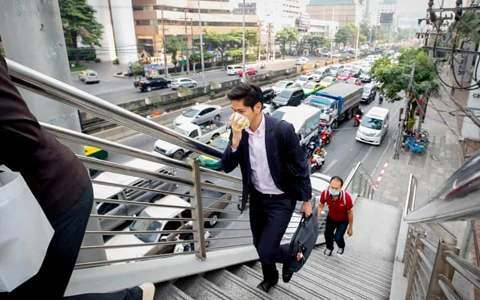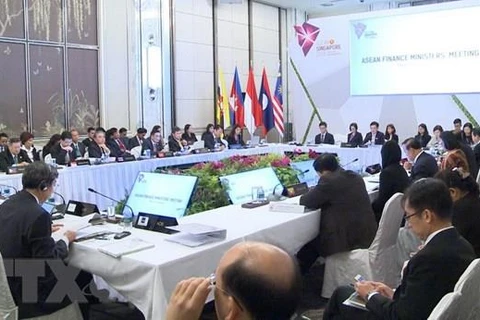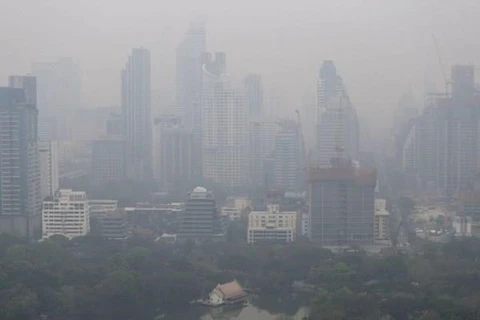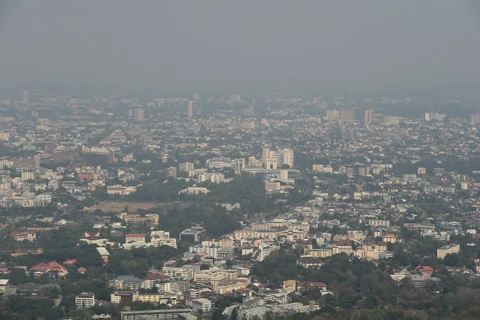Bangkok (NNT/VNA) - Thailand and Japan have joined hands in air quality management and the reduction of fine PM 2.5 particulate matter in traffic congested areas, starting with air pollution surveys in Bangkok to find the sources of pollution by the end of this year, in order to create solutions to resolve this issue.
At the third seminar on Thailand-Japan cooperation on air quality management, the Pollution Control Department (PCD) Director General Pralong Dumrongthai, revealed the latest outcome from both countries cooperation to mitigate excessive PM 2.5 airborne particulate matter in Thailand, during which related staff have collected air samples from three locations with high traffic congestion and community areas, namely Din Daeng, Bang Na, and Soi Ari Samphan.
The air samples were sent to Japan for an assessment of pollution sources, with the results expected to be disclosed by the end of this year. The results from this studies will be made into mitigation guidelines for the PM 2.5 crisis in large urban areas with high road traffic volume.
Thailand’s Ministry of Natural Resources and the Environment, and Japan’s Ministry of the Environment, have signed an agreement on environmental cooperation to provide support for academic works and the making of measures and policies to solve the airborne particulate matter disaster in Thailand, including the making of a fine dust release list, an assessment of dust sources, and policy-level development to solve the dust issue.
The cooperation will continue for at least the two years 2018-2019.
The Japanese government has been providing support in the form of academics who help exchange ideas and make suggestions on policy making and the creation of measures solving this problem. – NNT/VNA
At the third seminar on Thailand-Japan cooperation on air quality management, the Pollution Control Department (PCD) Director General Pralong Dumrongthai, revealed the latest outcome from both countries cooperation to mitigate excessive PM 2.5 airborne particulate matter in Thailand, during which related staff have collected air samples from three locations with high traffic congestion and community areas, namely Din Daeng, Bang Na, and Soi Ari Samphan.
The air samples were sent to Japan for an assessment of pollution sources, with the results expected to be disclosed by the end of this year. The results from this studies will be made into mitigation guidelines for the PM 2.5 crisis in large urban areas with high road traffic volume.
Thailand’s Ministry of Natural Resources and the Environment, and Japan’s Ministry of the Environment, have signed an agreement on environmental cooperation to provide support for academic works and the making of measures and policies to solve the airborne particulate matter disaster in Thailand, including the making of a fine dust release list, an assessment of dust sources, and policy-level development to solve the dust issue.
The cooperation will continue for at least the two years 2018-2019.
The Japanese government has been providing support in the form of academics who help exchange ideas and make suggestions on policy making and the creation of measures solving this problem. – NNT/VNA
VNA
























